An Idaho Room Rental Agreement is a legal document outlining terms for renting a room. It ensures clarity and protection for both landlords and tenants, providing a structured framework for the rental relationship. Using a PDF template helps streamline the process, ensuring all necessary details are included for a smooth experience.
1.1 Definition and Purpose
An Idaho Room Rental Agreement is a legally binding contract between a landlord and tenant, outlining the terms for renting a room in a property. Its primary purpose is to establish a clear understanding of the rental relationship, including responsibilities, rights, and obligations of both parties. This document ensures that all aspects of the tenancy are agreed upon upfront, reducing potential disputes. It covers essential elements such as rent, payment terms, duration, and rules for shared spaces, providing a structured framework for a harmonious rental experience in Idaho.
1.2 Importance of a Room Rental Agreement
A room rental agreement is crucial for establishing a clear, legally binding relationship between landlords and tenants in Idaho. It protects both parties by outlining rent, responsibilities, and expectations, minimizing disputes. This document ensures that all terms are mutually agreed upon, providing a reference point for resolving conflicts. It also helps landlords maintain control over their property while giving tenants security and clarity regarding their rights. Having a written agreement fosters a professional and respectful rental relationship, ensuring compliance with Idaho’s legal standards and avoiding potential misunderstandings.
Legal Requirements for Room Rentals in Idaho
Idaho room rentals must comply with state laws and local ordinances. Landlords and tenants must adhere to regulations regarding security deposits, eviction processes, and maintaining habitable living conditions.
2.1 Idaho State Laws Governing Room Rentals
Idaho state laws regulate room rentals, ensuring compliance with specific legal standards. These laws cover security deposit limits, eviction procedures, and requirements for maintaining habitable living conditions. Landlords must provide written notices for rent increases or lease terminations, adhering to statutory timelines. Additionally, Idaho law prohibits discriminatory practices in housing under the Fair Housing Act. Tenants are also entitled to privacy rights, with landlords required to provide reasonable notice before entering the rental property. Understanding these laws is essential for both landlords and tenants to avoid legal disputes and ensure a smooth rental process.
2;2 Local Ordinances and Regulations
Local ordinances in Idaho may impose additional rules for room rentals, varying by city or county. For example, cities like Boise or Idaho Falls might have specific zoning laws or health and safety regulations. Some areas may require business licenses for rental activities or enforce particular standards for shared living spaces. Tenants and landlords should consult local government resources to ensure compliance with these regulations, as they can differ significantly from state laws. Understanding local rules helps avoid legal issues and ensures a harmonious rental experience.
Drafting an Idaho Room Rental Agreement
Drafting an Idaho Room Rental Agreement involves outlining clear terms, rights, and responsibilities for both parties. Ensure the document includes rental duration, payment details, and compliance with local laws.
3.1 Essential Elements of the Agreement
An Idaho Room Rental Agreement must include key elements such as rent amount, payment terms, tenancy duration, tenant and landlord responsibilities, and rules for shared spaces. It should also outline the property’s address, occupancy limits, and any specific restrictions. Including signatures from both parties and witnesses ensures legality. These elements prevent disputes by providing clear expectations and obligations for all involved, ensuring a smooth rental experience.
3.2 Step-by-Step Guide to Creating the Document
To create an Idaho Room Rental Agreement, start by obtaining a reliable PDF template. Fill in personal details, property information, and rental terms. Outline rent amount, payment methods, and due dates. Define the tenancy duration and occupancy limits. Establish responsibilities for utilities, maintenance, and shared spaces. Include rules for guests, pets, and noise levels. Add signature lines for landlord, tenant, and optional witnesses. Ensure all terms are clear and mutually agreed upon to avoid disputes. Review and finalize the document carefully.
3.3 Digital Tools for Generating the Agreement
Digital tools simplify creating an Idaho Room Rental Agreement. Use online platforms like PDF editors or legal software to customize templates. Websites offer downloadable PDF forms tailored to Idaho laws. Utilize e-signature tools for convenient signing. Ensure the chosen platform includes essential clauses and complies with state regulations. These tools streamline the process, reducing errors and saving time. They also provide secure storage for digital records, making future references easier. Opt for reputable services to ensure document legality and professionalism.
Key Clauses in an Idaho Room Rental Agreement
A room rental agreement in Idaho should include rent terms, tenancy duration, tenant and landlord responsibilities, and rules for shared spaces to ensure mutual understanding and compliance.
4.1 Rent and Payment Terms
Rent and payment terms are essential clauses in an Idaho room rental agreement. They outline the monthly rent amount, due date, and acceptable payment methods. Clear terms help prevent disputes. Landlords should specify late fees and penalties for missed payments. Tenants should ensure their right to a written receipt for rent payments is included. This section also defines the tenant’s responsibility to pay on time and the landlord’s obligation to provide a secure payment process. Transparent rent terms foster a fair and organized rental relationship.
4.2 Duration of the Tenancy
The duration of the tenancy in an Idaho room rental agreement specifies the start and end dates of the rental period. It can be a fixed term or a month-to-month arrangement. Fixed-term leases outline the exact duration, while month-to-month agreements can be terminated with proper notice. The agreement should clarify the process for renewal or termination, ensuring both parties understand their obligations. This section prevents misunderstandings and provides stability for both landlords and tenants, allowing for clear planning and expectations regarding the rental timeline.
4.3 Responsibilities of the Tenant and Landlord
The Idaho room rental agreement outlines the responsibilities of both the tenant and landlord. Tenants are typically required to pay rent on time, maintain the room, and adhere to household rules. Landlords must ensure the property is habitable, address repairs, and respect the tenant’s privacy. Clearly defining these roles helps prevent disputes and ensures a harmonious living arrangement. Both parties should review and agree on their obligations to maintain a mutually beneficial rental relationship.
4.4 Rules and Regulations
The Idaho room rental agreement should include specific rules and regulations to maintain order and respect within the shared living space. These may cover guest policies, noise levels, use of common areas, and expected behavior. Both tenants and landlords should agree on these guidelines to ensure a harmonious environment. Clearly outlined rules help prevent conflicts and provide a framework for resolving disputes. They also clarify expectations, making the rental relationship more structured and mutually respectful.
Benefits of Using a Room Rental Agreement
A room rental agreement offers protection for landlords and tenants, ensuring clarity in responsibilities and rent terms. It prevents disputes by establishing clear expectations and boundaries.
5.1 Protection for Landlords
A room rental agreement provides landlords with legal safeguards, ensuring rent payment terms and tenant responsibilities are clearly defined. It minimizes risks of disputes by outlining expectations and obligations, offering a framework for addressing issues like damages or lease violations. The agreement also protects landlords’ property rights, ensuring tenants adhere to agreed-upon rules. By having a written contract, landlords can enforce terms legally, reducing potential conflicts and financial losses. This document is essential for maintaining a structured and secure rental relationship in Idaho.
5.2 Protection for Tenants
A room rental agreement safeguards tenants by clearly outlining their rights and responsibilities. It ensures transparency in rent terms, payment methods, and lease duration, preventing unexpected changes. The agreement also specifies the landlord’s obligations, such as maintaining habitable conditions. Tenants gain legal recourse if their rights are violated, ensuring fair treatment. This document protects tenants from unfair evictions and provides a written record of agreed-upon terms, offering peace of mind and clarity in the rental relationship.
5.3 Clarity in the Rental Relationship
A room rental agreement provides clear expectations for both parties, eliminating ambiguity. It defines roles, responsibilities, and terms, ensuring everyone understands their obligations. This clarity reduces misunderstandings and potential disputes. By outlining rent, payment methods, and property rules, the agreement fosters a transparent and organized rental relationship. Tenants and landlords can refer to the document for guidance, promoting harmony and mutual respect throughout the tenancy. Clear communication is essential for a smooth and stress-free rental experience.
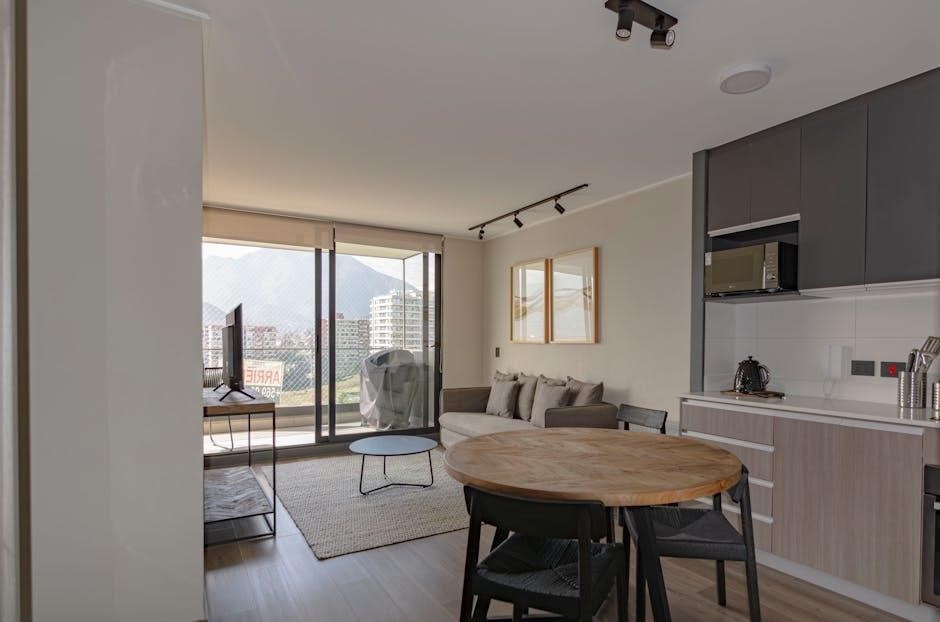
Common Challenges in Room Rentals
Common challenges in room rentals include communication breakdowns, tenant reliability issues, and managing shared utilities. A clear agreement helps mitigate these concerns effectively.
6.1 Disputes Over Rent and Payments
Disputes over rent and payments are common in room rentals, often arising from late payments, unclear terms, or disagreements over fees. A well-drafted agreement can prevent such issues by outlining payment methods, due dates, and late fees. Idaho landlords and tenants should ensure the agreement specifies consequences for missed payments and procedures for resolving financial conflicts. Clear communication and documented payment records can help mitigate disputes, ensuring a smoother rental experience for all parties involved.
6.2 Issues with Shared Spaces
Shared spaces in room rentals often lead to disputes over cleanliness, noise levels, and personal property. Tenants may disagree on how common areas are maintained or used. A room rental agreement should outline expectations for shared spaces, including responsibilities for upkeep and rules for guest access. Clearly defining these terms helps prevent conflicts and ensures a harmonious living environment. Regular communication and mutual respect are key to resolving issues promptly, maintaining a positive relationship between tenants and landlords.
6.3 Compliance with Local Laws
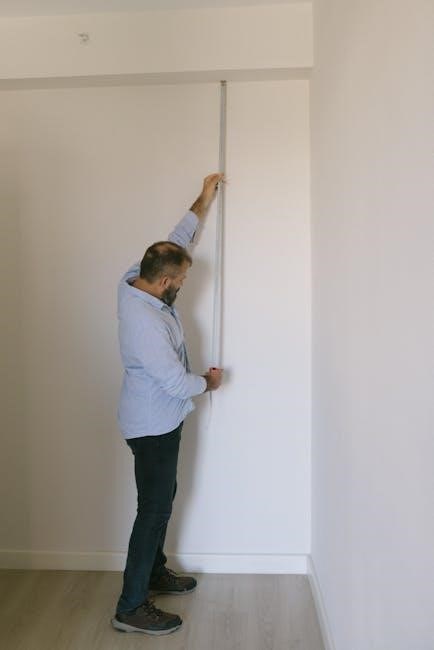
Compliance with local laws is crucial for a smooth room rental experience in Idaho. Landlords must adhere to zoning regulations, health codes, and safety standards. Failure to comply can result in legal penalties or fines. Tenants should also be aware of their obligations under local ordinances. A well-drafted room rental agreement ensures both parties understand their responsibilities, helping to avoid legal disputes. Staying informed about Idaho’s specific laws and regulations is essential for maintaining a lawful and hassle-free rental arrangement.
Expert Tips for Landlords and Tenants
Ensure clear communication, use detailed room rental agreements, and maintain organized records. Regular inspections and open dialogue foster positive relationships and prevent potential disputes or misunderstandings.
7.1 Screening Potential Tenants
Thoroughly screening tenants is crucial for a smooth rental experience. Start with credit checks to assess financial stability and employment verification to ensure steady income. Review rental history to identify any past issues or evictions. Contact personal references to gauge reliability and responsibility. Consider using a tenant questionnaire to gather additional information. A written rental application can formalize the process and provide legal protection. Ensuring a comprehensive screening process helps landlords select trustworthy tenants and minimizes potential conflicts or financial risks down the line.
7.2 Maintaining a Positive Landlord-Tenant Relationship
Maintaining a positive relationship requires open communication and mutual respect. Respond promptly to tenant concerns and ensure transparency in all interactions. Respect tenants’ privacy and personal space while addressing property needs. Be fair and consistent in enforcing rules and handling disputes. Regularly inspect the property to prevent issues and ensure habitability. Encourage tenants to communicate openly about their needs or concerns. Building trust fosters a harmonious relationship, benefiting both parties and creating a stable rental environment. A positive relationship can lead to long-term tenancies and fewer conflicts.
7.3 Regular Inspections and Maintenance
Regular inspections and maintenance are crucial for preserving the property’s condition and ensuring tenant safety. Schedule periodic checks to identify and address potential issues early. Inspect for damages, needed repairs, and compliance with safety standards. Document findings and discuss any concerns with tenants promptly. Maintain a record of all inspections and repairs for transparency. Address maintenance requests quickly to prevent larger problems. A well-maintained property fosters a positive living environment and protects the landlord’s investment. Regular upkeep also helps in preserving the value of the rental property over time.
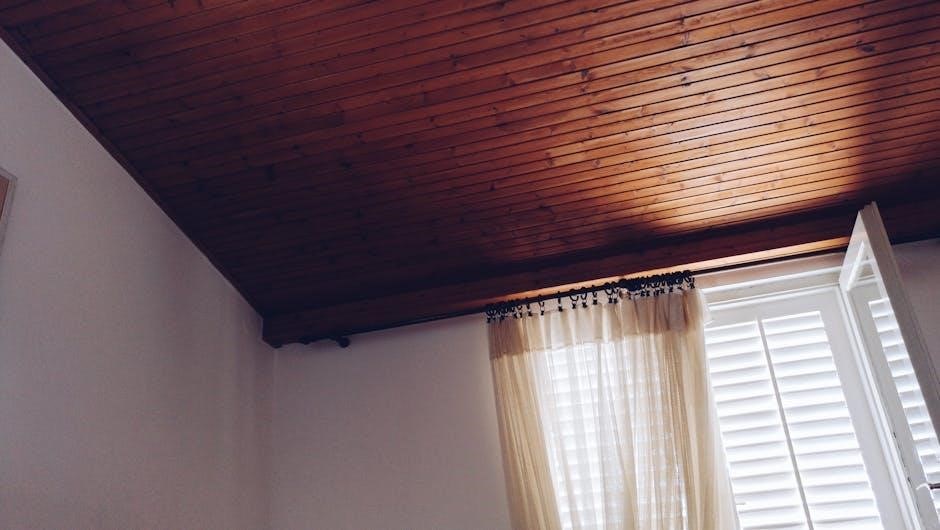
The Rental Process in Idaho
The rental process in Idaho involves finding the right tenant, preparing the property, and establishing clear terms. A room rental agreement ensures a smooth experience for both parties.
8.1 Finding the Right Tenant
Finding the right tenant involves thorough screening, including background checks, rental history, and employment verification. A well-crafted room rental agreement helps attract responsible tenants. Use a PDF template to ensure clarity and legality, protecting both parties. Proper tenant screening ensures a harmonious rental experience and minimizes potential disputes. It’s essential to comply with fair housing laws during the selection process. A clear agreement outline in the PDF template helps set expectations early, fostering a positive landlord-tenant relationship from the start.
8.2 Preparing the Property for Rental
Preparing the property for rental involves cleaning, repairs, and ensuring safety standards are met. A room rental agreement PDF template can help outline tenant responsibilities. Conduct a thorough inspection to identify and address any issues. Ensure all shared spaces are clean and functional. Proper preparation enhances the property’s appeal and attracts reliable tenants. It also sets a positive tone for the rental relationship. A well-maintained property reduces the risk of disputes and ensures compliance with Idaho’s housing standards.
8.4 Move-In and Move-Out Procedures
Move-in and move-out procedures ensure a smooth transition for tenants. Begin with a property inspection, documenting the condition of the room and shared spaces. Use a room rental agreement PDF to outline expectations, such as required notice periods and cleanliness standards. At move-out, conduct a final inspection to assess any damages. Return the security deposit, if applicable, after deductions for repairs. Proper documentation and communication are key to avoiding disputes and maintaining a professional relationship. A clear process benefits both landlords and tenants, ensuring accountability and clarity throughout the rental cycle.
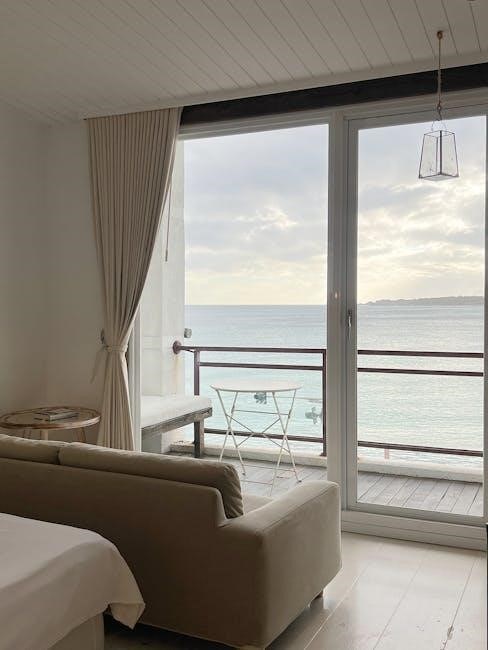
Idaho Room Rental Agreement PDF Template
An Idaho Room Rental Agreement PDF template provides a structured format for outlining terms. It includes sections for rent, responsibilities, and signatures, ensuring clarity and legal compliance. Customizable to fit specific needs, it helps landlords and tenants establish a clear understanding of their obligations, protecting both parties in the rental process.
9.1 Where to Find a Reliable Template
Reliable Idaho Room Rental Agreement templates can be found on official state websites, legal aid platforms, or reputable real estate sites. Websites like the Idaho State Bar Association or local housing authorities often provide free or low-cost templates. Additionally, trusted legal document providers offer customizable PDF templates tailored to Idaho’s specific laws. Ensure the template complies with state and local regulations before use. Always verify the source’s credibility to avoid outdated or incorrect information.
9.2 Customizing the Template for Specific Needs
Customizing an Idaho Room Rental Agreement template ensures it meets your specific needs. Start by adding details like rent amount, payment terms, and duration. Include clauses about security deposits, shared spaces, and house rules. Tailor the agreement to address unique situations, such as pet policies or guest restrictions. Ensure all modifications comply with Idaho state laws. Consulting a legal professional can help verify the document’s accuracy and enforceability. A well-customized agreement protects both parties and prevents future disputes.
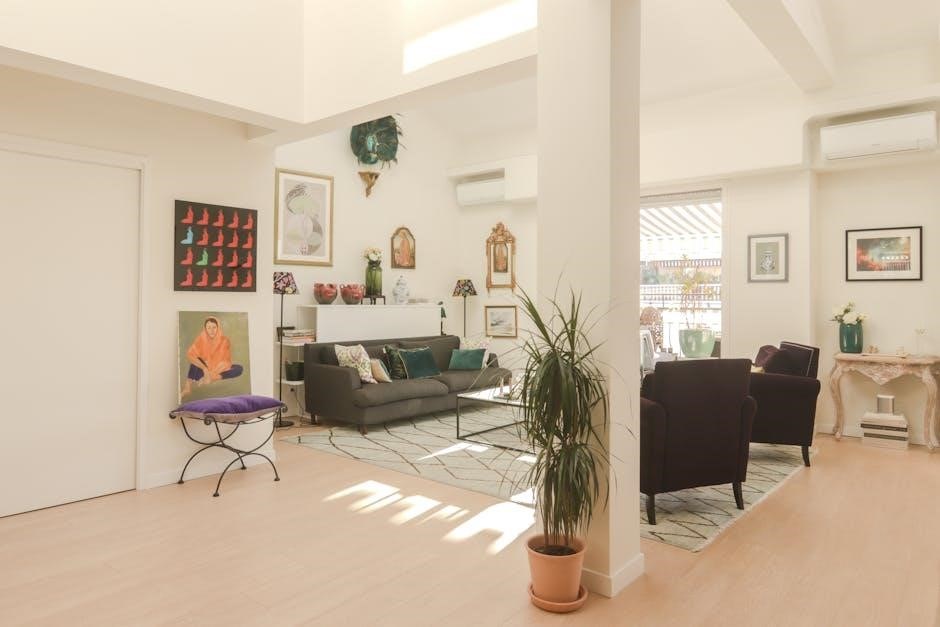
Idaho Landlord-Tenant Laws
Idaho landlord-tenant laws regulate rental interactions, covering security deposits, eviction processes, and maintenance responsibilities. They protect both parties and ensure a fair rental environment.
10.1 Security Deposits and Fees
In Idaho, security deposits and fees are regulated to protect both landlords and tenants. The state allows landlords to charge a security deposit, typically limited to one month’s rent. Landlords must return the deposit within 30 days of the tenant moving out, minus any deductions for damages or unpaid rent. Additionally, Idaho law permits landlords to charge reasonable fees for late payments or NSF checks, ensuring transparency in financial transactions. These regulations help maintain a balanced and fair rental relationship.
10.2 Eviction Processes
In Idaho, eviction processes are governed by state law, ensuring a structured approach for landlords to remove tenants. A landlord must provide written notice, typically 3 days for non-payment of rent or 30 days for lease violations. If the tenant fails to comply, the landlord can file a Forcible Entry and Detainer action. Courts review the case, and if ruled in favor of the landlord, a writ of restitution is issued to remove the tenant. Tenants have the right to contest the eviction, and landlords must follow legal procedures to avoid disputes.
10.3 Habitable Living Conditions
Idaho landlords are legally required to maintain habitable living conditions, ensuring the rental property is safe, sanitary, and free from defects. This includes functioning plumbing, heating, and electrical systems, as well as compliance with local building codes. Tenants have the right to report violations, and landlords must address issues promptly. Failure to provide habitable conditions can lead to legal action, including rent reductions or termination of the lease. The rental agreement should outline these responsibilities to protect both parties and ensure a livable environment.
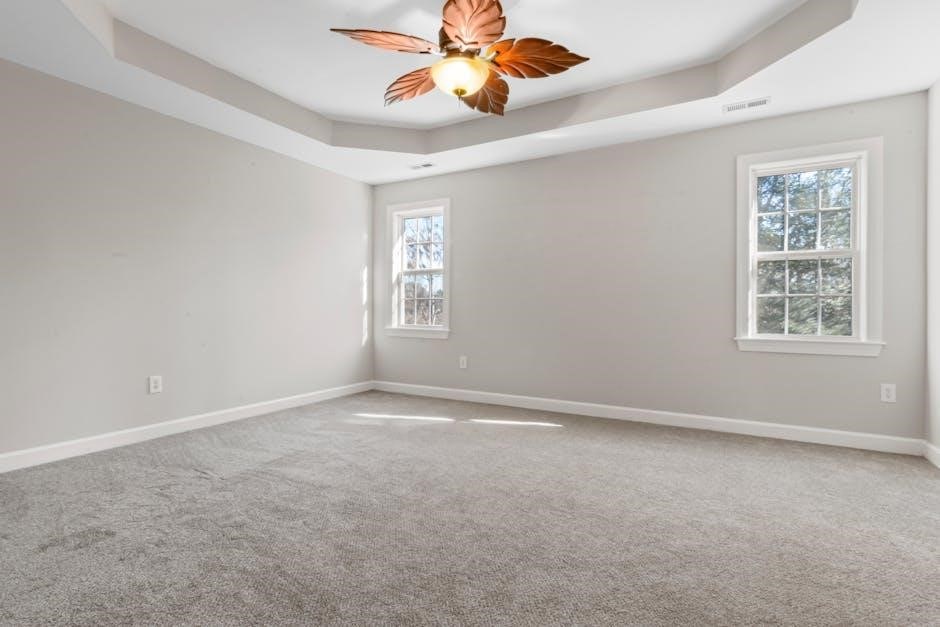
Tax Implications of Room Rentals in Idaho
Renting a room in Idaho has tax implications. Rental income must be reported, and expenses like utilities and maintenance can be deducted. Understanding tax obligations is crucial to avoid IRS and state issues.
11.1 Reporting Rental Income
In Idaho, rental income from room rentals must be reported to the IRS and state authorities. Landlords are required to include this income on their tax returns, typically using Schedule E. The IRS mandates accurate reporting to avoid penalties. Tenants do not report rental payments as income. Proper documentation, such as receipts and ledgers, is essential for compliance. Failure to report rental income can lead to audits and fines, emphasizing the importance of maintaining detailed records and consulting a tax professional if needed.
11.2 Deductions and Expenses
Landlords in Idaho can deduct various expenses related to room rentals on their tax returns. These include mortgage interest, property taxes, insurance, maintenance, and repairs. Utilities and cleaning services for shared spaces may also qualify. However, expenses must be directly tied to the rental activity and deemed reasonable. Keeping detailed records is crucial for accurately claiming deductions. Landlords should consult a tax professional to ensure compliance with IRS guidelines and maximize eligible deductions, as improper claims can lead to audits and penalties.
The Importance of a Written Agreement
A written agreement is essential for outlining clear terms, avoiding disputes, and ensuring legal protection and mutual understanding for both landlords and tenants in Idaho room rentals.
12.1 Avoiding Verbal Misunderstandings
A written Idaho room rental agreement eliminates the risks of verbal misunderstandings by providing a clear, legally binding document. It outlines rent, responsibilities, and terms, ensuring both parties understand their obligations. Verbal agreements often lead to disputes due to lack of clarity, but a written contract offers a reference point for resolving conflicts. This formal document ensures that all terms are agreed upon upfront, reducing the likelihood of future disagreements and providing a foundation for a smooth rental relationship.
12.2 Legal Enforcement of Terms
A written Idaho room rental agreement ensures that all terms are legally enforceable. Courts rely on written contracts to resolve disputes, as they provide clear evidence of agreed-upon terms. Without a written agreement, enforcing rent payments, responsibilities, or rules becomes challenging. A formal document protects both landlords and tenants by outlining specific obligations and consequences for violations. This legal framework ensures that both parties can seek remedies if terms are breached, providing a clear path for resolving conflicts and maintaining accountability.
An Idaho Room Rental Agreement is essential for protecting both landlords and tenants. It ensures clarity, legal compliance, and a smooth rental experience for all parties involved.
13;1 Final Thoughts on Idaho Room Rental Agreements
An Idaho Room Rental Agreement is a vital tool for establishing clear expectations and protecting both landlords and tenants. Using a PDF template ensures a professional and legally binding document. It outlines rent, responsibilities, and terms, fostering a harmonious rental relationship. Regular inspections and open communication can prevent disputes. Both parties should review the agreement thoroughly to avoid misunderstandings. By adhering to Idaho’s laws and including all necessary clauses, the agreement provides a solid foundation for a successful rental experience. Consulting legal professionals is always a wise step for compliance and peace of mind.

Additional Resources
Explore Idaho housing authorities and legal aid services for comprehensive guides and PDF templates. Visit official state websites for accurate and up-to-date rental agreement information.
14.1 Idaho Housing Authorities and Websites
Idaho housing authorities provide essential resources for landlords and tenants. The Idaho Housing and Finance Association offers guides and forms for rental agreements. The U.S. Department of Housing and Urban Development (HUD) also provides detailed information on tenant-landlord laws in Idaho. Official state websites, such as the Idaho State Government portal, offer access to legal documents and rental agreement templates. These resources ensure compliance with local laws and provide a foundation for creating enforceable room rental agreements.
14.2 Legal Aid and Consultation Services
For legal guidance on Idaho room rental agreements, tenants and landlords can access consultation services. Idaho Legal Aid Services provides free legal assistance to low-income individuals, while the Idaho State Bar Association offers referrals to qualified attorneys. Additionally, local law firms specializing in real estate can review rental agreements and offer tailored advice. These resources help ensure compliance with state laws and protect the rights of all parties involved in the rental process.